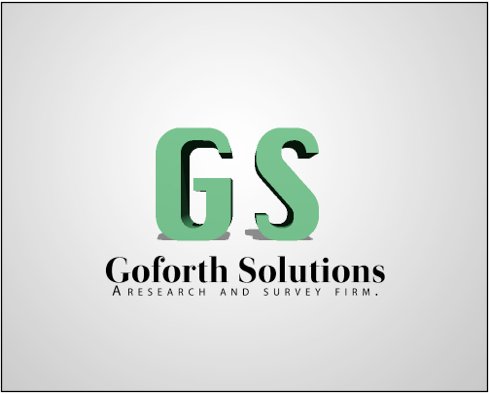Mon, March 4 – What is Service Journalism?
What: Want to learn everything you need to know about service journalism? This workshop is about finding, reporting, writing, and pitching better service stories.
Who: Tim Herrera, former editor of NYT's service desk Smarter Living for a wide-ranging discussion on all things service journalism.
When: 2 pm, Pacific
Where: Zoom
Cost: Free
Sponsor: Freelancing With Tim
More Info
Mon, March 4 - Journalism Ethics: Not Just a Local Thing
What: The discussion will look at how news organizations with journalists from many different countries share and enforce basic rules of journalism ethics that we can all agree to.
Who: Fred Brown Chair of the SPJ Professional Standards and Ethics Committee and former Denver Post editor and columnist; Kathy English, former Toronto Star public editor/ombudsman and current chair of the Canadian Journalism Foundation; Steven Springer, former editor for standards and best practices at Voice of America and Eric Wishart, Standards and Ethics Editor for AFP.
When: 7pm, Eastern
Where: Zoom
Cost: Free
Sponsor: Society of Professional Journalists, Washington, DC chapter
More Info
Tue, March 5 – The Path Forward: Artificial Intelligence
What: Adobe’s suite of creative software incorporating AI, the company’s work to tackle misinformation and the balance between innovation and risk with the advent of new technologies.
Who: Shantanu Narayen, chair and CEO of Adobe
When: 11 am, Eastern
Where: Zoom
Cost: Free
Sponsor: Washington Post
More Info
Tue, March 5 - Introduction to AI for Nonprofits
What: Learn how to use AI to enhance your nonprofit's website and basic marketing strategies, making it easy to understand and apply.
Who: Tapp Network’s Jon Hill and web developer Tareq Monaur.
When: 10 am, Eastern
Where: Zoom
Cost: Free
Sponsor: TechSoup
More Info
Wed, March 6 - Using Microsoft Copilot (AI) in PowerPoint
What: We'll cover creating a presentation from scratch or from a document, editing a presentation, getting help from Copilot, including how to do a task in PowerPoint, summarizing a presentation, and finding content Best practices for getting the best results, including prompt engineering What Copilot can't do (at least not yet) and how to give Microsoft feedback.
Who: Ellen Finkelstein, President, Ellen Finkelstein Inc.
When: 3 pm, Eastern
Where: Zoom
Cost: Free
Sponsor: Training Magazine Network, Presentation Guild
More Info
Wed, March 6 - The Art of Color Grading: The Impact on Visual Storytelling
What: The nuances of color grading, demonstrating how this essential process can transform the visual appeal and emotional impact of your digital content.
Who: Gabriela Fialova, Coordinator of Digital Media; David Ziegler, Media and Post-Production Specialist.
When: 6 pm, Eastern
Where: Zoom
Cost: Free
Sponsor: Small Business Development Center Kutztown University of Pennsylvania
More Info
Thu, March 7 - Integrating Artificial Intelligence: Creating Video & Audio Projects
What: An immersive session exploring how Artificial Intelligence is revolutionizing the landscape of content creation. Discover cutting-edge tools and techniques that leverage AI to streamline video and audio production processes. We will guide you through hands-on demonstrations, showcasing the seamless integration of AI in video and audio projects. Learn how AI can enhance creativity, automate repetitive tasks, and open new frontiers in storytelling. Whether you’re a content creator, podcaster, or just an entrepreneur who lacks creativity, this webinar is tailored to help you harness the power of AI for captivating and innovative projects.
When: 12 pm, Eastern
Where: Zoom
Cost: Free
Sponsor: Small Business Development Center Kutztown University of Pennsylvania
More Info
Thu, March 7 - How Journalists Can Support the PRESS Act
What: An off-the-record virtual panel discussion explaining the PRESS Act, and why reporters and editorial boards should cover it. The panel will be followed by an on-the-record Q&A session with audience members.
Who: Alex Bertschi Wrigley, legislative assistant for Sen. Ron Wyden; Fred Brown, chair of the ethics committee of the Society of Professional Journalists and former journalist for The Denver Post; Caitlin Vogus, deputy director of advocacy at Freedom of the Press Foundation; Larry Wilson, member of the Southern California News Group editorial board.
When: 12 noon, Eastern
Where: Zoom
Cost: Free
Sponsor: Freedom of the Press Foundation and the Society of Professional Journalists
More Info
Fri, March 8 - Online Harassment & Privacy Protections: What journalists need to know
What: From doxing to hacking, journalists around the world are subject to online harassment and abuse every day. While some of these attacks have been aimed at political journalists and those working to hold power to account, all reporters need to be on the alert for potential online harassment and attacks. This webinar will offer instruction on how to minimize your personal risk of online harassment and protect your private information.
Who: David Huerta, senior digital security instructor for the Freedom of the Press Foundation.
When: 11:30 am
Where: Zoom
Cost: Free
Sponsor: National Press Club Journalism Institute
More Info
